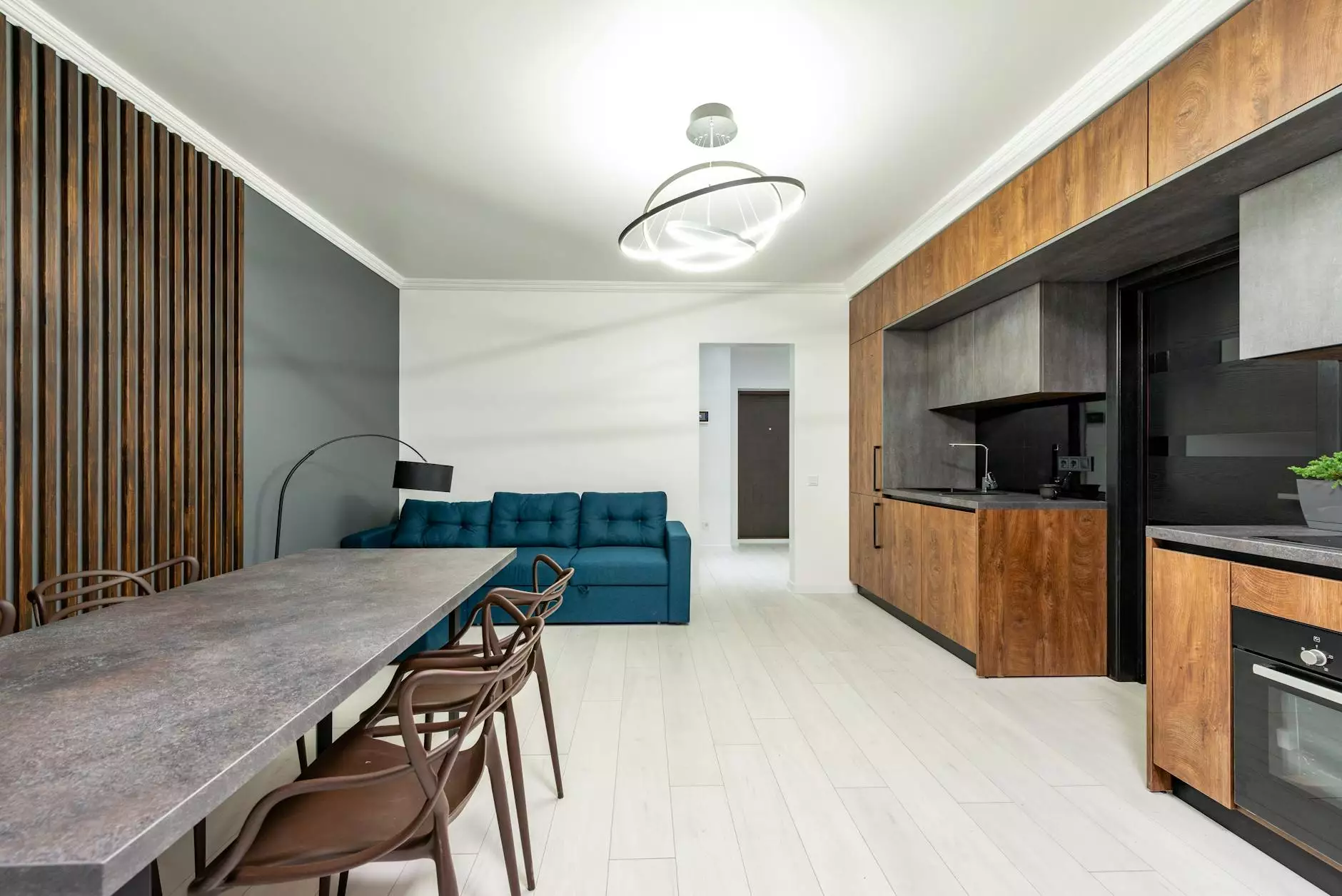Planning a Kitchen Renovation: A Comprehensive Guide

Understanding the Importance of Kitchen Renovation
A kitchen renovation is more than just an aesthetic upgrade; it is an investment in your home’s value and functionality. The kitchen, often referred to as the heart of the home, plays a vital role in our daily lives. Whether you are preparing meals for family or entertaining friends, a well-planned kitchen can significantly enhance your experience. This article will delve into the crucial aspects of planning a kitchen renovation, ensuring that your new kitchen meets your functional needs while reflecting your personal style.
Defining Your Renovation Goals
Before embarking on any renovation project, it is essential to identify your goals. Why do you want to renovate your kitchen? Here are some common objectives:
- Updating Old Features: Outdated appliances, fixtures, and cabinets can detract from the overall function and appearance.
- Improving Functionality: A disorganized or poorly planned kitchen can make cooking and entertaining challenging.
- Increasing Home Value: A modern kitchen often adds significant value to your home, making it more appealing to potential buyers.
- Enhancing Aesthetics: Aesthetic updates can breathe new life into your kitchen, making it a more enjoyable space.
Creating a Budget for Your Kitchen Renovation
Establishing a realistic budget is one of the most critical steps in planning a kitchen renovation. It's easy to get carried away with beautiful designs and high-end materials, but a well-thought-out budget ensures that you stay on track. Here are some tips to help you create an effective budget:
- Research Costs: Understand the average costs for the materials and labor required for your specific renovation needs.
- Prioritize Needs vs. Wants: Distinguish between what you need and what would be nice to have.
- Include a Contingency Fund: Set aside approximately 10-20% of your overall budget for unexpected expenses.
- Get Multiple Quotes: Compare estimates from various contractors to ensure you are getting a fair price.
Designing Your Dream Kitchen
The design phase is where your vision starts to come to life. Consider the following factors when designing your kitchen:
Layout Considerations
The layout of your kitchen significantly impacts its functionality. Common kitchen layouts include:
- U-Shaped: Utilizes three walls of cabinetry, ideal for maximizing space.
- L-Shaped: Offers flexibility and is perfect for open-concept spaces.
- Galley: A narrow arrangement that enhances efficiency, great for smaller spaces.
- Island Layout: Adds additional counter space and storage, perfect for cooking and socializing.
Choosing Colors and Materials
Your choice of colors and materials can set the tone for your kitchen. Here are some popular options:
- Cabinetry: Choose between wood, laminate, and metal finishes.
- Countertops: Options include granite, quartz, and marble; consider durability and maintenance.
- Flooring: Hardwood, tile, and vinyl are all excellent choices depending on your needs and style.
- Wall Colors: Neutral palettes can create a classic look, while bold colors can offer a striking contrast.
Sustainable and Energy-Efficient Options
Sustainability is increasingly becoming a key factor in home renovations. From energy-efficient appliances to sustainable building materials, there are many options to consider:
- Energy-Efficient Appliances: Investing in ENERGY STAR certified appliances can save you money in the long run.
- Recycled Materials: Use reclaimed wood or recycled glass for flooring and countertops to minimize environmental impact.
- Water-Efficient Fixtures: Installing low-flow faucets and fixtures can help conserve water.
Hiring the Right Professionals
While some homeowners may attempt a DIY approach, hiring experienced professionals ensures that your renovation goes smoothly. Here’s how to choose the right contractors:
- Check Credentials: Verify licenses and insurance before proceeding.
- Seek Recommendations: Ask friends or family for referrals to trustworthy contractors.
- Review Past Work: Look at portfolios and past projects to gauge quality and style.
- Ask for References: Contact previous clients to understand their experience and satisfaction.
Overcoming Common Renovation Challenges
During a kitchen renovation, challenges often arise. Being prepared can help you navigate these hurdles more effectively. Common challenges include:
- Delays: Construction schedules may shift, so it's essential to remain flexible.
- Unexpected Costs: Hidden issues may arise, so always have some contingency funds ready.
- Design Conflicts: Communicate clearly with your designers and contractors to minimize misunderstandings.
Final Steps: Inspections and Finishing Touches
Once your renovation is complete, it's crucial to conduct a thorough inspection. Ensure all work meets local codes and standards:
Final Inspection Checklist:
- Review Workmanship: Check for any defects in finishes, cabinetry, and installations.
- Test Appliances: Ensure all appliances work correctly and meet your expectations.
- Inspect Plumbing and Electrical: Verify that all systems function properly and safely.
- Update Your Space: Add personal touches like decor, plants, or artwork to complete the look.
Conclusion: Enjoy Your New Kitchen
The joy of a newly renovated kitchen cannot be overstated. It not only enhances the aesthetic appeal of your home but also significantly increases its value. By carefully planning a kitchen renovation with attention to detail, budget considerations, and professional help, you can create a space that is not only functional but also a true reflection of your personal style. Embrace the process, address challenges with confidence, and soon enough, you’ll be enjoying your dream kitchen to the fullest!
For more information about kitchen makeovers and renovations, visit Kitchen Makeovers.









